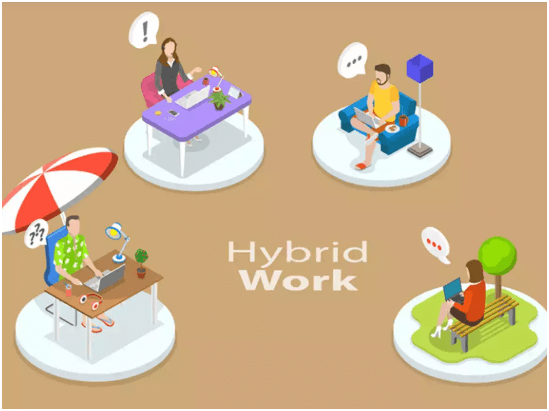Hybrid Models and Purpose-Driven Careers Are Redefining Success
The workplace landscape continues to evolve as hybrid work models and purpose-driven careers redefine traditional employment patterns. The shift toward a more flexible balance between remote and in-office work has reshaped how companies operate, forcing them to reconsider not just where work is done, but also how it’s done. At the same time, employees are increasingly seeking careers that align with their personal values, with corporate social responsibility (CSR) and meaningful work taking center stage in career decision-making.
Hybrid work models have become a hallmark of the post-pandemic world, blending the benefits of remote work with the structure of in-office environments. This approach offers employees greater flexibility while maintaining the collaborative energy that physical office spaces can provide. For many, the hybrid model allows for a better work-life balance, reducing commuting time and offering more control over daily schedules. Employers, in turn, benefit from higher employee satisfaction, improved productivity, and access to a broader talent pool that is no longer geographically constrained.
Despite its advantages, hybrid work poses challenges that organizations must address to ensure its long-term viability. One major concern is maintaining a cohesive company culture. With employees dispersed across different locations, fostering a sense of community and shared purpose can be difficult. Companies are responding by investing in digital collaboration tools, virtual team-building activities, and regular in-person meetings to keep teams connected. Additionally, clear communication of expectations and consistent management practices are essential to ensure that both remote and in-office employees feel equally valued and engaged.
Another critical factor in the hybrid work model is equity. Companies must be mindful of providing equal opportunities for career advancement, training, and mentorship to all employees, regardless of their work location. The potential for proximity bias—where in-office employees receive preferential treatment—is a real concern. To counter this, many organizations are implementing standardized performance metrics and ensuring that leadership remains accessible to remote workers.
While the hybrid model focuses on flexibility, the growing demand for purpose-driven careers reflects a deeper societal shift toward meaningful work. Employees, especially younger generations, are increasingly prioritizing jobs that align with their values and contribute to a greater good. This trend is driven by a heightened awareness of global issues such as climate change, social justice, and economic inequality. As a result, job seekers are gravitating toward organizations that demonstrate a genuine commitment to CSR and sustainability.
Corporate social responsibility has become a key differentiator for companies looking to attract and retain top talent. Businesses that integrate CSR into their core operations are more likely to resonate with employees seeking purpose-driven careers. This goes beyond traditional philanthropic efforts; it involves embedding ethical practices into every aspect of the business, from supply chain management to community engagement. Companies that can clearly articulate their mission and show measurable impact are better positioned to attract employees who want their work to make a difference.
Moreover, the rise of purpose-driven careers has led to an increased focus on employee well-being and mental health. Workers are no longer content with jobs that provide financial stability alone; they want environments that support their overall well-being and align with their personal growth. Companies are responding by offering wellness programs, mental health resources, and initiatives that promote a healthy work-life balance. This holistic approach to employee care not only improves morale but also enhances productivity and reduces turnover.
The intersection of hybrid work models and purpose-driven careers presents both opportunities and challenges for employers. Organizations that successfully navigate this evolving landscape will need to be adaptable, transparent, and proactive in addressing employee needs. Flexibility in work arrangements must be matched by a commitment to creating a purpose-driven culture where employees feel their contributions matter. This requires ongoing dialogue between employers and employees to understand shifting priorities and adjust strategies accordingly.
Stay informed with the latest updates – click here .

